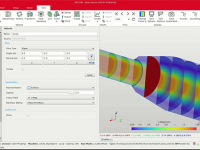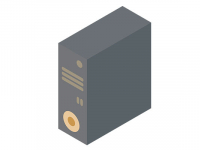
November 15, 2022
Across all industries, the digital revolution is accelerating. There exists an enormous challenge for engineering departments to address ever more complicated tasks associated with the escalating complexity of products being demanded by consumers.
The end-to-end development and manufacturing processes require proficiency in formalized processes that start with well-defined and managed stakeholder requirements to field delivery and maintenance throughout the entire product or process lifecycle.
The overwhelming intrusion of the pandemic produced tremendous challenges that threatened to unhinge traditional engineering development and manufacturing methods. The existing and escalating complexities accelerated the need to meet these new challenges.
Simulation Cycles
Consumer demands are driving smart, connected, and autonomous technologies. These technologies may include many different engineering disciplines (electrical, electronic, controls, thermal, hydraulics, etc.), working to provide the optimal customer experience. To deliver these products to market quickly, efficiently, and safely, the product development and manufacturing cycles must be tuned to explore multiple simulation cycles.
These cycles focus on the stakeholder needs and wants and are then decomposed into system requirements that must be met to ensure stakeholder final acceptance. Derived requirements fall into many distinct categories (regulatory, functional, performance, etc.) that have associated test cases to ensure their validity, and approval.
Process assumptions made through the decades must now be questioned for viability. Non-value-added tasks need to be eliminated. Engineering groups are being tasked to examine legacy processes and make fundamental changes in their efficiencies. These examinations will start in the concept stage of the development process.
Fill out the information below to download the resource.
Latest News







